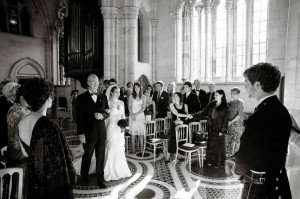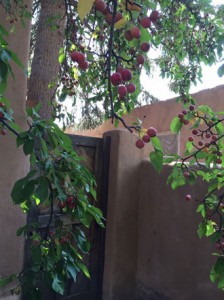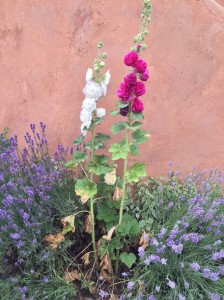 Most of you have probably heard that I’m writing a script for one of the episodes of Season Two for the Outlander/Starz TV series. This is new and interesting—I’ve written comic book scripts for Walt Disney (waaaay back in the late 70′s) and I’ve written the script for a graphic novel (THE EXILE— for those of you who haven’t encountered it, it tells the story of the first third of OUTLANDER in graphic novel format—from Jamie’s and Murtagh’s point of view)—but I’ve never done a script for TV or movie before.
Most of you have probably heard that I’m writing a script for one of the episodes of Season Two for the Outlander/Starz TV series. This is new and interesting—I’ve written comic book scripts for Walt Disney (waaaay back in the late 70′s) and I’ve written the script for a graphic novel (THE EXILE— for those of you who haven’t encountered it, it tells the story of the first third of OUTLANDER in graphic novel format—from Jamie’s and Murtagh’s point of view)—but I’ve never done a script for TV or movie before.
Now, I have read a few of these. During the period when the books were under option to various producers who wanted to make a two-hour movie of OUTLANDER (something that is flat-out impossible to do, but many valiant attempts were made), I saw several movie scripts, most of them written by very reputable screenwriters. These were each uniquely horrible, but instructive.
Then along came Ron D. Moore, and a TV series. While you still can’t fit a 300,000 word novel into sixteen hours of television, you can do a much better job of adaptation. And as I told Ron, after he showed me his pilot script for the first episode, "This is the first thing I’ve seen based on my work that didn’t make me either turn white or burst into flame."
I was lucky enough to be asked to be a consultant on the show, which means that I see script outlines, scripts, script revisions—and ultimately, the actual footage that’s shot. This process has been much more instructive, since I get to see just how often—and how much—a given script flexes and changes before it goes on camera—and how it actually comes out on film. (Then the film gets edited, too, but that’s another process altogether…)
The first time we met, Ron asked me if I thought I’d like to write a script for the show, and I said no:
- I’d never written one, didn’t know whether I’d be any good at it, and didn’t want to be responsible for screwing up the vital first season in any way, and
- I was coming into the Final Frenzy on MOBY and knew I wouldn’t have time to breathe, let alone take on a challenging new project.
So I passed—but said that IF we got a second season… then I might like to do one…
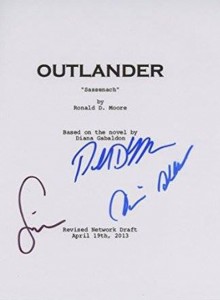 Since most people don’t either write scripts or know a lot of people who do, I thought you might be interested in the basic process. At least as practiced by Outlanderworld. <g>
Since most people don’t either write scripts or know a lot of people who do, I thought you might be interested in the basic process. At least as practiced by Outlanderworld. <g>
When we agreed that I’d write a script, and Ron chose which one (it’s episode 211 – the eleventh out of thirteen episodes in Season Two), the next thing was for me to come to the Writers Room in Pasadena, and work out the basic flow of the story with Ron, Maril, and some of the other writers.
Some of you will have seen photos of the Writer’s Room in its pristine state: comfortable couches facing two walls of magnetic white-board. When in action, the white-board is covered with erasable magnetic sheets, each containing notes on a scene, scene-let, or transition. This is where a script starts to take shape.
Now prior to this, the script/book has been "broken"—literally. The original book has been taken apart, scene by scene, and all the lines of original dialogue stripped out and listed, so the writers can use as much as possible of the original language, even though it may sometimes occur in a different context.
The Writers Room collectively then sorts through all these pieces, and reassembles them (roughly) into however-many episodes the season has. Given that each episode is roughly 57 minutes, and that each episode has to have its own dramatic arc (you can’t have an entire episode of exposition, whereas you can do whole chapters of it in a novel. I don’t recommend that you do that, by the way—but you can), the book material is not going to fit neatly and contiguously.
Ergo, the chronology of the story will be roughly the same: the events that take place in Paris obviously precede the events of the Rising in Scotland, and Jamie’s friendship with Charles Stuart naturally has to come before Claire treats the monkey bite on the Prince’s hand, and Jamie’s duel doesn’t take place before he meets the man he’s going to challenge. BUT… smaller pieces of the plot that aren’t necessarily linear may be moved, or flexed a little, or even separated into still smaller pieces that can be included in separate places, in order to achieve an interesting, coherent and more or less self-contained episode. AND in service of this goal, small new pieces and lines may need to be created to blend and support the original pieces in their new configuration.
This is why I was telling people (in response to pre-Ep 15/16 hysteria) to put down the book and enjoy the show. They aren’t gonna be exactly the same (for the reasons described above)—but with luck, goodwill, determination and talent (all of which the Outlander production team have in spades), the result will indeed be recognizably "Outlander"—and sometimes perhaps even an enchantingly novel Outlander.
So I went and spent a very entertaining day in the Writers Room. The script had already been "broken," so we knew how much material would be included in Episode 211, but not how it might be arranged, or what might or could be tweaked or added to give an exciting, coherent structure.
The rough layout for Episodes 210 and 212 were also on the board, on either side of 211, along with a very rough notion of 213. (Yes, I know how it ends. No, I’m not going to tell you. It will be fine. Don’t worry.) I could therefore see how some elements of what I was handling would look coming out of 210, and should look, going into 212.
What followed was a mass mental jigsaw puzzle, with everybody moving pieces, suggesting new things, arguing about them, vetoing this, approving that, and fitting everything together. The writers were all doing this en masse on the couches, while Richard, the writers’ assistant, and Mike, the script manager, were on Aero chairs at the back of the room with their laptops, taking down everything we said and the conclusions we came to—these being the "room notes," which were forwarded to me afterward.
OK, the next step in doing a script is for the writer to do an outline of his or her episode, roughing out and expanding the material from the room notes, adding whatever small creative things occur during the process that likely won’t disrupt the agreed-on Big Picture.
I’d seen a lot of script outlines from Season One (and several from Season Two), and frankly, this is Not Difficult. It took me three days of dilatory work (meaning I was doing other stuff at the same time, not that I wasn’t paying attention) to produce this. An outline runs 10-11 pages, and just recounts the linear run of the story, noting occasional specific lines of dialogue or setups that may be important.
The outline went to Ron and Maril, and I got back Ron’s notes on it, which were very brief, and mostly to do with filming logistics—as in, we couldn’t have a full-scale ambush with twenty soldiers and thirty Highlanders, but we could do something like the opening scenes of Season One right after Claire goes back, suggesting such an ambush while using only a few actors.
I tweaked the outline to address Ron’s notes, and he then sent it "upstairs" to the people at Sony and Starz who have script approval. Got back combined notes from these two sources (known as "Studio" and "Network")—also luckily brief, and as I told Ron, "These look just like the sort of editorial comments you get on a book manuscript. I have a lot of practice in addressing such concerns while still doing whatever it is I want." (We’ll find out how far that last part goes, in terms of script writing, given that I am the ultimate judge of what goes into a book, and I’m not, at all, with regard to a script.)
Anyway, the Studio/Network notes were minor enough that Ron told me to "go to script," rather than re-drafting the outline, and so I did.
Now, let me digress here to note that I know a lot of writers who work linearly, and who work from outlines, and some who—finding the scatter-shot methods network thinkers use to be confusing—have latterly taken up the outline method. Everyone who uses outlines insists that having an outline makes drafting the manuscript much easier.
They’re right about that; it was easy. Much, much less interesting than putting the pieces together as you invent them <g>, but certainly easy enough—and I did get to make up the dialogue and insert entertaining (well, to me, at least) bits of byplay and business.
Frankly, the most difficult part of it all was the formatting software—FinalDraft 9—and that wasn’t really hard; just a matter of familiarizing myself with it. (Well, that, and its Really Annoying scrolling, which never worked smoothly. Don’t know if it was FD9 or something I was doing, but it would hit the bottom of a page as I was typing, and not scroll up into a blank space so I could continue on the next page. I’d have to fiddle with the cursor control, the PgDn/Up, and the End keys in various combinations every time I needed to change pages or go back and forth to any degree.) I don’t know (yet) how to do fancy things like format the opening title page, but I depend on the kindness of Richard and Mike to explain that one to me.
So—the script is done. But—as with anything involving writing, and especially anything involving television—that’s only the beginning.
First Ron and Maril will read the script and give me any notes they have. Depending on number and complexity, I may redo the script to address those or just add tweaks here and there. Once Ron’s satisfied with it, it goes—once more—to Sony and Starz, who both get to make notes, which may require various fixes (or not so many, if we’re lucky. Who knows?). The script might go through three, four, five iterations before it becomes a "Production" script. But that’s not the end of it!
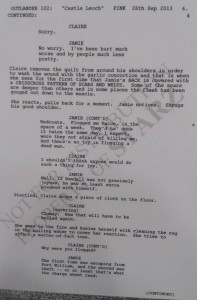 All kinds of issues arise, before and during filming, that require changes to a script. Many of these are very minor, a few might involve ditching multiple pages and inserting a whole new scene or set of scenes.
All kinds of issues arise, before and during filming, that require changes to a script. Many of these are very minor, a few might involve ditching multiple pages and inserting a whole new scene or set of scenes.
And above all—it depends on how the script "plays." Can the actors do the lines without repeatedly cracking up? (I’ve seen a couple of scenes where they couldn’t. In one such series of takes, after the fourth try ended in giggles, Sam Heughan is saying, "This is never gonna work," and you can hear the director saying firmly in the background, "Yes, it is!" (It did, too, but it took a while. Sometimes persistence will do it, and sometimes the writer (or the actor, or the director) changes the line.) Is the scene physically awkward in some way that only becomes apparent when the actors block it? Does it run too long? Is some speech badly phrased, so it sounds stilted? Does the action need to be re-arranged in order to accommodate camera angles or scenery? Do the actors and/or the director like the script, or do they feel strongly that this or that isn’t working? All these sorts of things have to be fixed on the fly, as it were—which is, I assume, why the writer needs to be on set while his or her script is being filmed.
I will say that I’ve seen seven or eight iterations of a script done after the ‘Production’ version.
So far, it’s been a fascinating process, and I’m grateful for the opportunity to do it. I’ll let you know what happens next!
P.S. I had breakfast with George R.R. Martin shortly after the agreement that I’d do a script, and mentioned it to him—knowing that he’d done a good deal of television writing before taking to novels. He laughed and said, "Oh, so you’re about to learn the Great Secret of screenwriting!"
"Reckon so," I said. "And what’s that, George?" He leaned toward me conspiratorially and said, "It’s MUCH easier than writing a novel!"
Also posted on my Facebook page on August 24, 2015.

